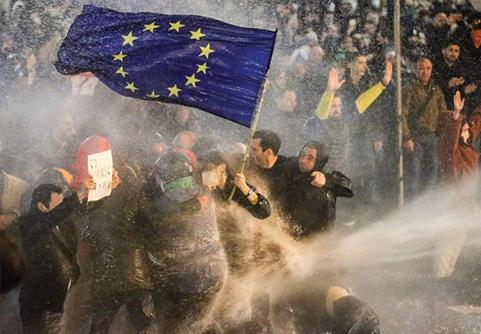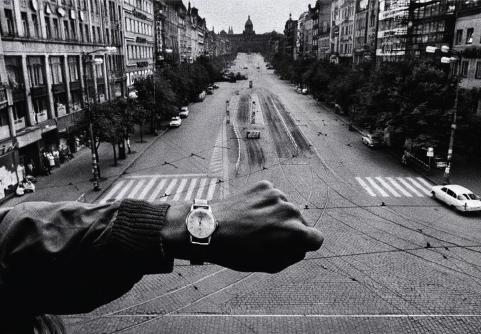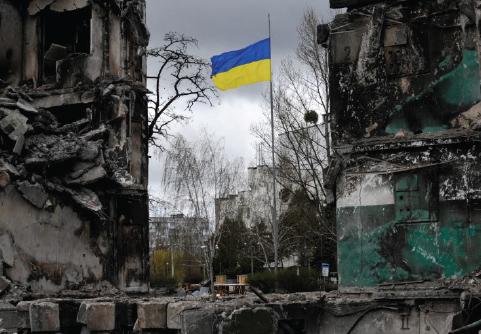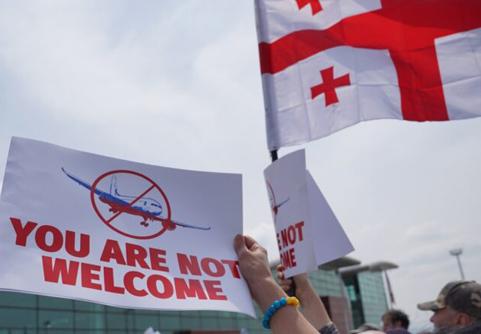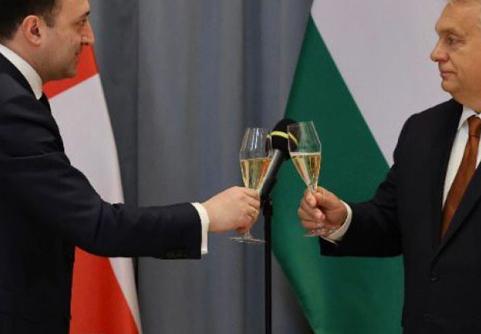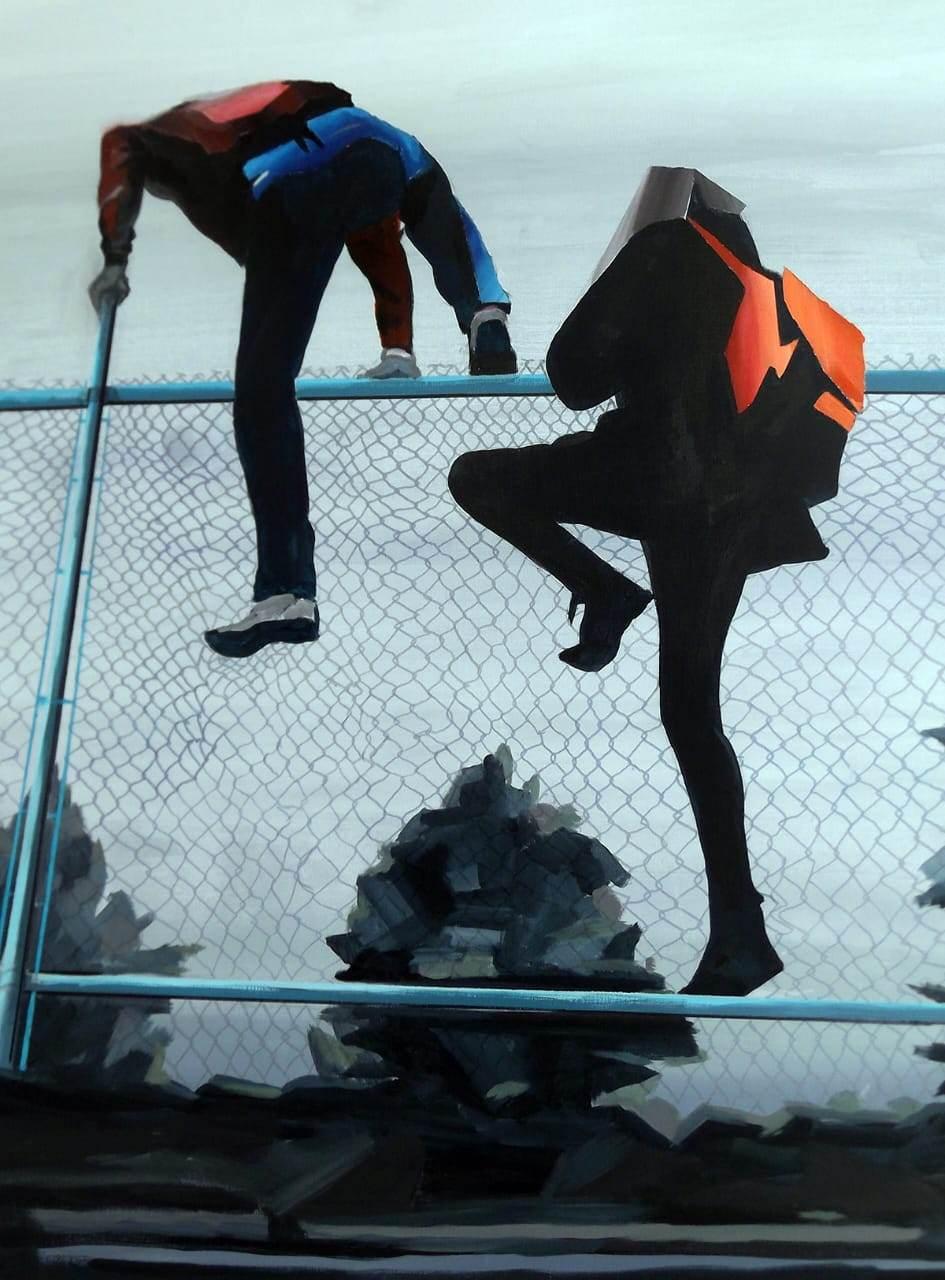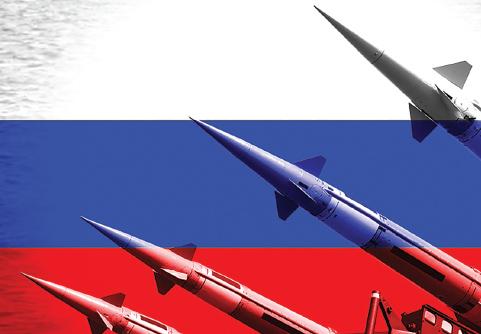
Author : Giorgi Kharebava
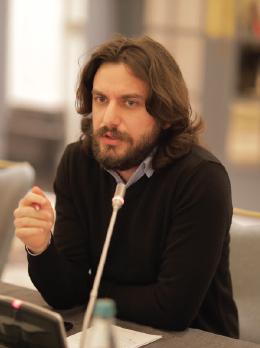
For more than 20 years, Putin has been fighting the West, subjecting the entire civilised world to nuclear blackmail and telling his citizens myths about the great Russian superpower. It took the collective West a long time to adequately assess and act decisively against Russia’s megalomaniacal leader obsessed with neo-imperialist ambitions, but as the saying goes, better late than never. Thanks to Russia’s impressive arsenal of weapons of mass destruction and abundant natural resources, Putin got away with a lot of cruelty, evil, and crimes and by 24 February 2022 the criminal at the head of the Kremlin had become so arrogant that he even acted to wipe Europe’s largest sovereign state off the map. Here Putin, confident in his brilliant strategic mind, made a mistake.
He made his first mistake when he ordered his 200,000-strong army to launch an offensive across a battle front of several thousand kilometres and to seize the main cities of Ukraine, including the capital, Kyiv. It is highly likely that at least some Russian military officials were well aware of the folly of this operation, but how could they have expressed an opinion that contradicted the very wise Putin? It is so tricky to point out mistakes and miscalculations to the one who is always right!
Putin’s second mistake was political in nature. He failed to calculate that, after such brazenness, Europe would easily and quickly give up on his gas and oil, Western companies would leave Russia, the continuation of economic relations with Russia as usual would become reprehensible all over the world, and the Kremlin regime would be severely isolated internationally.
When Russia was confronted with a united and strong Western position, and when things did not go well on the battlefield thanks to the sacrifices of Ukrainian heroes, the “master strategist” resorted to the familiar and well-tested nuclear blackmail, although, as it turned out, the West had had enough of Putin’s whining, and the dictator’s ploy did not work. Despite nuclear threats from Russian officials and Kremlin propagandists, the West increased its military aid to Ukraine month after month, starting with anti-tank weapons and continuing with tanks and anti-missiles by the end of the of the first year of the war. Russian threats were no longer taken seriously in Western capitals.
There are still propagandists in Russia and around the world, funded by Moscow’s blood money, who wish it were otherwise, but the fact remains that the time is over when the nuclear blackmail in Putin’s arsenal worked. Russia will not be able to use nuclear weapons in Ukraine because the headache caused by such a move would be far greater and more devastating than the potential benefits. Everyone around understands this – Ukraine understands it, Western capitals understand it, and most importantly, the Kremlin itself understands perfectly well that nuclear blackmail will no longer work, and the use of nuclear weapons would be tantamount to suicide.
If you want to survive in the international system, you need allies, and for allies to appear, you need to have common interests respected by all stakeholders. Today, Russia can have common interests with only a few solid players. First of all, China and Iran, then India and North Korea, which is not a very powerful state, but reportedly supplies the Russians’ much-diminished military arsenal with artillery shells.
Probably no one would assert that these countries have taken a vow of selfless marriage with Russia and will support it with great enthusiasm both for better and for worse. Obviously, some are guided by economic interests, some need Russia’s help to develop their own military industries, and some are trying to enlist the Kremlin’s support in future strategic confrontations. In short, these countries need concrete benefits from Russia, and Russia’s use of nuclear weapons in Ukraine would minimise them and only create problems.
Western countries have repeatedly confirmed that the use of nuclear weapons against Ukraine would result in catastrophic consequences for Russia. The decisions taken in the US and in the capitals of its allies over the past year convince us that the West is not joking and is ready to take the toughest steps. So, there are virtually no question marks here. It would be interesting to see the possible reaction of those countries that today consider Russia a partner or simply continue normal business relations with it.
It is not hard to guess the reaction of Iran, which acted as Russia’s saviour during the crisis and urgently supplied Shaheed-type kamikaze drones to Russia. Ties with Moscow may be highly valued in Tehran, but even for them, Russia’s use of nuclear weapons would be a red line. No one has ever used nuclear weapons to gain an advantage in a military conflict since World War II. Since such weapons have been used, the international system has had a status quo of non-use of nuclear weapons, the violation of which is not in the interest of any major power. The use of nuclear weapons to win a war would set a disastrous precedent for international security that would cause irreparable damage to the security of countries like Iran. Despite its efforts, Iran is not yet a nuclear power, unlike the United States and most importantly Israel, which perceives Iran as an existential threat. Russia’s use of nuclear weapons in Ukraine would make the threat of a US or Israeli nuclear strike on Iran very real. For the record, frequent US and Israeli air strikes have recently resulted in the death of a high-ranking Iranian military official. Given this reality, Iran’s top priority in the war in Ukraine is to prevent Russia from using nuclear weapons.
The use of nuclear weapons on Ukrainian territory is also a red line for China, which considers itself a major competitor to the United States and has ambitions to become a global superpower. Despite its rapid development, China still has a long way to go before it gets there, so it must continue to invest in conventional weapons and at least quadruple its rather modest arsenal of weapons of mass destruction. Decisions in Beijing are made by rational people who are not characterised by the complexes inherent in Putin, so China has been moving thoughtfully, carefully, and systematically towards its great goal for many years. For Beijing, it is obvious that when China begins to build up its nuclear arsenal, the US and its allies will receive a serious response. The Chinese rulers intend to take this step only when the country is ready to withstand massive international pressure. In such circumstances, setting a precedent for Russia’s use of nuclear weapons in hostilities would overturn China’s longstanding plans. This makes the risks of using nuclear weapons in future conflicts real, and China has only up to 350 warheads, while its main rival, the United States, has more than 3,700 warheads. Whether the precedent of using nuclear weapons in a military conflict is in China’s interest given this disparity is for Moscow to judge. The same can be said of India, which, while cherishing its economic ties with Russia, attaches immense importance to the fact that the use of nuclear weapons would undermine the security of India, which is at odds with Pakistan.
A nuclear strike on Ukraine would also disturb the sleep of the North Korean leader, whose warheads can be counted on the fingers of one hand and would be of little use in the event of a nuclear war. Moreover, the use of nuclear weapons would inflict such irreparable damage to nuclear non-proliferation that dozens of countries would begin working on weapons of mass destruction themselves. Among them are likely to be Japan and South Korea, with whom an impoverished North Korea has no chance of competing.
The international system is based on the interests of big countries, and in the current system the use of nuclear weapons by anyone is not in the interests of either big, regional, or small countries. If Russia goes against everyone, it will find itself in complete and final isolation. Putin will be the man who will unite the Western democracies, the Iranian theocracy, and the Communist regimes in one camp, the purpose of which will be the exemplary punishment of the international bandit who dared to go against the system’s written and unwritten rules of conduct.
The use of nuclear weapons, even small tactical bombs, by Putin will ensure a catastrophic defeat of Russia in Ukraine. An obsessed Putin will put the world to a choice: either punish the criminal in an exemplary manner or continue to exist in an uncertain, dangerous, and self-destructive world. The choice is simple: no one is going to jeopardise their own security for the sake of Russia’s maniacal ambitions.
